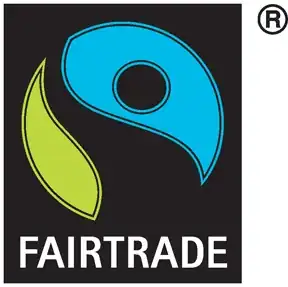Very little of the extra the end customer pays goes actually to the primary producer. While the fair trade goods cost usually substantially more than competitive products (often +50-100 %), the price difference paid to the primary producer is only marginally smaller.
Fair Prices for Farmers: Simple Idea, Complex Reality
"Farmers often receive very little," said Lawrence Solomon, managing director of the Energy Probe Research Foundation, a Canadian firm that analyzes trade and consumer issues. "Often fair trade is sold at a premium, but the entire premium goes to the middlemen."
Fair Trade labels don't list the amount paid to farmers; that sum requires research. The amount can vary depending on the commodity. An analysis using information from TransFair shows that cocoa farmers get 3 cents of the $3.49 spent on a 3.5-ounce chocolate bar labeled "organic fair trade" sold at Target. Farmers receive 24 cents for a one-pound bag of fair trade sugar sold at Whole Foods for $3.79.
The coffee farmer who produced the one-pound bag of coffee purchased by Mr. Terman received $1.26, higher than the commodity rate of $1.10. But whether Mr. Terman paid $10 or $6 for that fair trade coffee, the farmer gets the same $1.26
In some cases, the individual farmers may receive less than fair trade rules require because the money goes to cooperatives, which have their own directors who decide how much to pass on to farmers.
"We did a breakdown and saw that sometimes, what they're paying farmers is only 70 cents to 80 cents a pound" for coffee instead of the entire fair trade price of $1.26, said Christy Thorns, a buyer at Allegro Coffee, a roaster in Thornton, Colo., that is owned by Whole Foods. "There are so many layers involved."
Moreover, FairTrade also requires certification and annual fees, and they are quite substantial:
Flo-Cert Producer Certification System
- Initial Basic Fee at least € 1.400.00
- Annual Fee at least € 1,137.50
Note: this does not include "organics" certification. If the producer is to receive organics
premium, it has to undergo another certification.
To be fair, the price difference may differ. When free market price drops down (like it was in years 2001-2005, see e.g. tables in this fair trade report), the fair trade price still stays at a decided minimum level, which at some periods meant the farmer received 100 % more (with free market coffee price $.60 the producer still gets $1.21). Still, this 100 % represents only minor part of the difference the end consumer pays.
